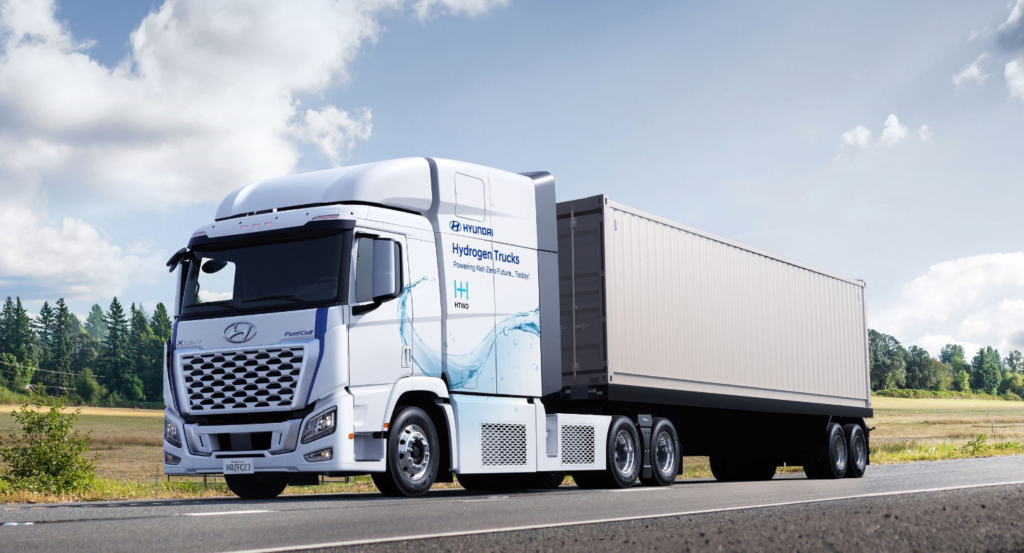
Hyundai Motor Company, which has chosen hydrogen as the core of future mobility, is securing technology and product competitiveness, focusing on commercial vehicles. It is also taking concrete steps to accelerate the transition to a hydrogen society by increasing overseas cooperation beyond the shrinking domestic market.

Hyundai Motor’s Exiant hydrogen electric truck has been used for logistics and transportation at ports in California. According to industries on the 28th, Hyundai Motor (005380) is increasing its production volume by launching new cars centering on commercial vehicles such as trucks and buses. The company is implementing a hydrogen roadmap in earnest. At the ACT Expo 2024 held in Las Vegas on the 20th (local time), Hyundai Motor showcased a concept model for improving the marketability of its Exiant hydrogen electric truck, and expanded the number of hydrogen buses produced at its Jeonju plant from 500 units per year to up to 3,000. Hyundai’s hydrogen roadmap was materialized at CES 2024 held in the U.S. earlier this year. The main point is to expand ‘HTWO’, which used to be the hydrogen fuel cell system brand, to Hyundai Motor Group’s hydrogen value chain business brand and convert it into a hydrogen society. Hyundai Motor has started its logistics and transportation business in North America to expand its hydrogen commercial mobility business. The commercial vehicle industry cites hydrogen as a carbon-neutral alternative. Considering the characteristics of commercial vehicles that require long-distance driving, hydrogen will be more advantageous than electricity, which has a relatively short mileage and a heavy battery weight. It is also convenient to establish a hydrogen charging network as most commercial vehicles have a fixed starting point and arrival point and similar driving route. As a result, global automakers have sparked competition by developing hydrogen-based commercial vehicles in various ways, ranging from hydrogen fuel cells to hydrogen fuel vehicles that directly burn hydrogen to fuel. Currently, Hyundai is the most advanced in this field. Nikola is producing and selling hydrogen fuel cell trucks, while Volvo plans to mass-produce hydrogen fuel trucks that burn hydrogen in 2029. Daimler trucks have also started researching hydrogen including development of liquid hydrogen fuel supply technology. Toyota is also working on hydrogen fuel cell development with a focus on commercial vehicles, and has partnered with PACCAR, a commercial vehicle company, to target the large truck market. Honda has also recently revealed its willingness to develop hydrogen commercial vehicles by introducing a hydrogen fuel cell truck concept car. Hyundai Motor plans to expand the market through overseas cooperation. In Korea, it is difficult to get enough power due to the shrinking hydrogen car market. According to the Korea Automobile Mobility Industry Associa.
JENNIFER KIM
US ASIA JOURNAL



